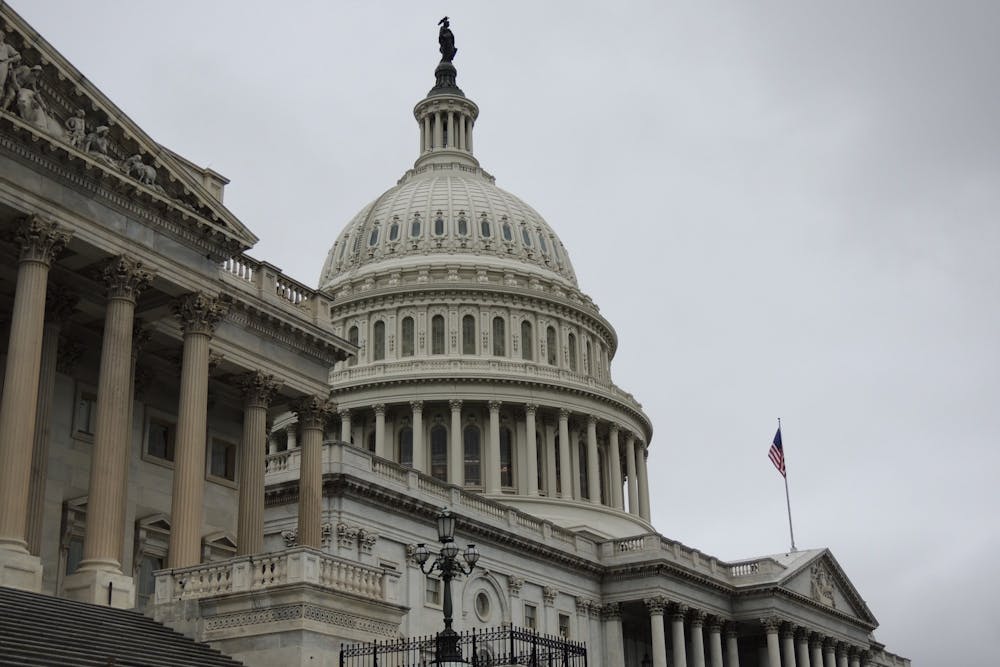
Pennsylvania has lost one Congressional seat despite steady population growth over the past decade.
Credit: Kylie CooperPennsylvania will lose a seat in the U.S. House of Representatives in 2022, taking the state from 18 to 17 total representatives. The state will also lose one of its 20 Electoral College votes.
Pennsylvania has lost 18 Congressional seats since 1920, the largest decrease in representation out of all U.S states. Since peaking at 36 House representatives in 1910, Pennsylvania has lost U.S. seats following every U.S. census. The state’s population has remained steady over the last 10 years, but other southern and western states have experienced faster population growth, York Daily Record reported.
Pennsylvania’s congressional map is drawn by the General Assembly and must be approved by the governor. The republican-majority state House and Senate and Democratic GovernorTom Wolf will need to agree on a new district map.
Democratic political strategist Mustafa Rashed told the Philadelphia Inquirer that if someone is retiring, it is usually easiest to reapportion their seat. Although more data will not be released until August at the earliest, estimates show growth in south-central and southeastern Pennsylvania, making seats in western Pennsylvania prime targets.
The National Democratic Redistricting Committee called for Pennsylvania’s 15th Congressional District to be eliminated because of population decline in that area. The seat is currently held by Republican Glenn Thompson, the Inquirer reported.
Dennis Roddy, a senior adviser with a Pittsburgh-based Republican consulting firm, told the Inquirer that target districts for redistricting include those represented by Republicans John Joyce, Guy Reschenthaler, and Mike Kelly, and Democrat Conor Lamb. Roddy expects Republican mapmakers to draw Lamb and Democrat Mike Doyle into a district together.
If the General Assembly and Wolf cannot agree on a map, the decision will go to the state Supreme Court, which has a Democratic majority.
In 2018, the Pennsylvania Supreme Court ordered the state legislature to draw a new congressional map after they ruled that the previous district lines were influenced by gerrymandering.
The Daily Pennsylvanian is an independent, student-run newspaper. Please consider making a donation to support the coverage that shapes the University. Your generosity ensures a future of strong journalism at Penn.
Donate



